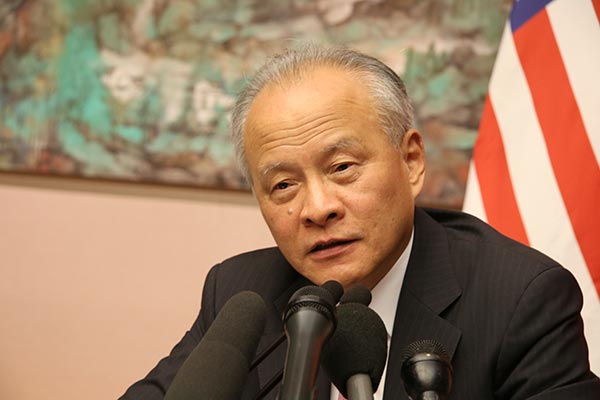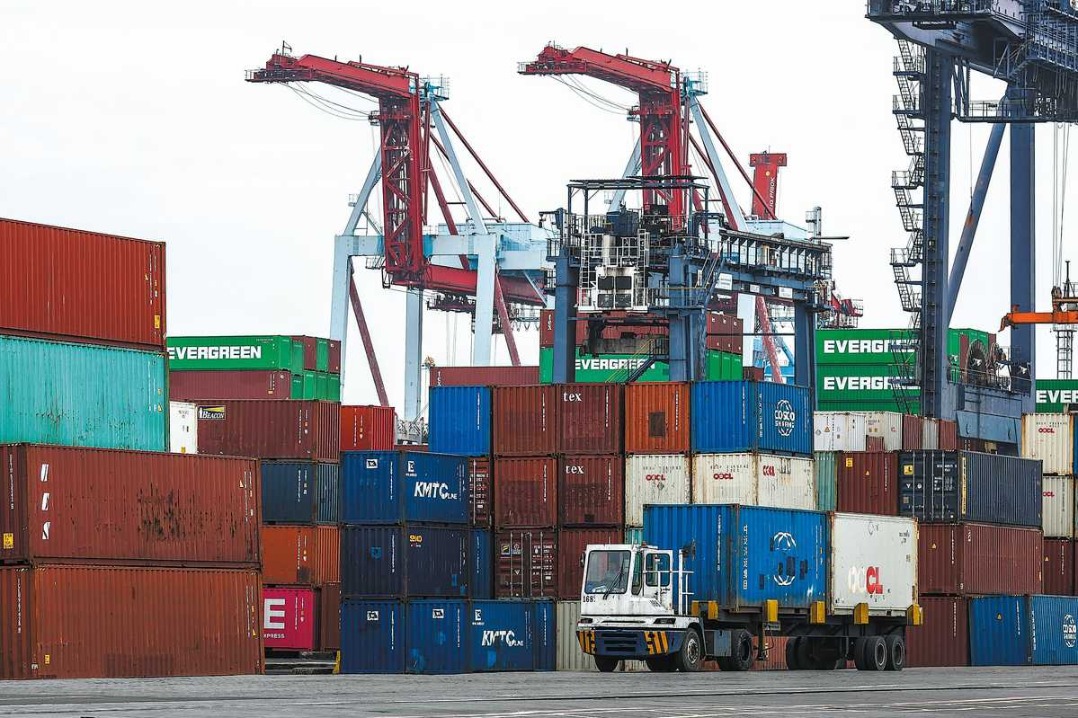Cui: US trade war tactics 'unjustified'


China's top envoy in Washington on Wednesday warned the Trump administration that trade "bullying" will backfire and argued that the United States' justification for a trade war is flawed.

"Does the US government genuinely believe that China would possibly yield to such unreasonable policy?" Chinese Ambassador Cui Tiankai wrote in an op-ed published in USA Today, referring to the trade war initiated by the US.
The world's top two economies are embroiled in a dispute intensified by a fresh round of tariff threats from the US, following 25 percent duties it started to impose on $34 billion worth of Chinese imports on July 6.
"Anyone familiar with Chinese history knows that 'maximum pressure' doesn't work for our nation. Trade bullying will only backfire. There is no winner in a trade war," Cui wrote. "The US will only end up hurting itself and the world."
The ambassador said the underlying arguments of the US in waging the trade war are "unjustified".
For example, on the trade deficit the US runs with China, which is the main criticism that the US makes against China, Cui said, "China has never deliberately sought a trade surplus, as the flow of trade is determined by the market. Having a deficit does not mean the US is 'losing.'"
In refuting China's "forced transfer of technology" as alleged in the US trade representative's statement on July 10, Cui said, "Let's be clear: The Chinese government has never made any such request to foreign companies. When it comes to technology or any other cooperation between Chinese and foreign companies, it is purely a matter of voluntary contracts."
As to the alleged theft of intellectual property, Cui said Chinese economic success has never been achieved by stealing from anyone, and never will be.
Since entering the World Trade Organization in 2001, intellectual property royalties paid by China to foreign rights holders has registered annual growth of 17 percent, reaching $28.6 billion in 2017, at least 25 percent of which went to the US, according to Cui.
"Indeed, improving IPR protection is crucial to China's own development, particularly in technological innovation," he said.
Cui added that there is room for China to improve its trade policy and address structural economic issues, and Beijing is open to addressing "reasonable" American concerns through dialogue and consultation.
"For great powers such as China and the US, competition — even conflict — is natural," Cui said. "It is, however, vital for us to manage such competition in an effective and constructive way."
Already, some US companies are pulling back investments in equipment and jobs "as a result of uncertainty over trade policy", according to the minutes of the Federal Reserve Board's June meeting, which were released early this month.
At a hearing on Capitol Hill on Wednesday afternoon, Dave Reichert, chairman of the Ways and Means Subcommittee on Trade, said, "I've heard heart-wrenching stories, in some cases of farmers and families already scrambling to make ends meet, who are forced to make difficult decisions to cope with the uncertainty caused by tariffs."
Kevin Paap, a corn and soybean farmer and president of the Minnesota Farm Bureau, said the current tariffs, retaliatory actions and trade uncertainties are hitting American agriculture from all sides, causing farmers to lose markets.
"Once you lose the market, it's really hard to get it back," he told the hearing on the effects of tariffs on US agriculture and rural communities.
Contact the writer at huanxinzhao@chinadailyusa.com
































